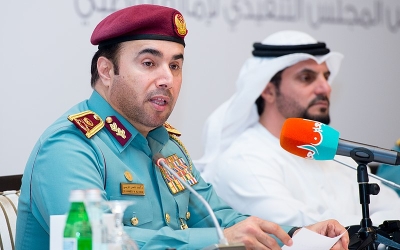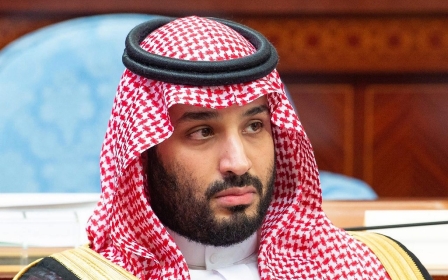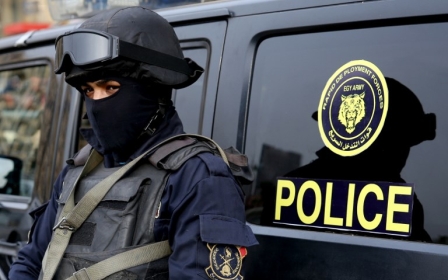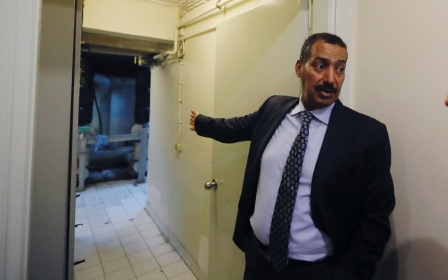UK academic Matthew Hedges slams UAE general's bid to head Interpol
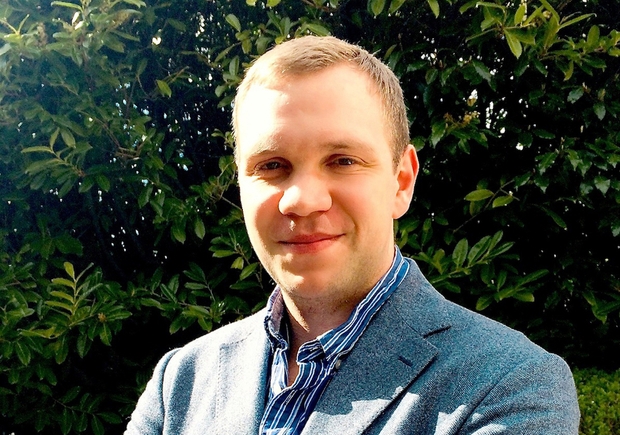
A British academic previously jailed in the United Arab Emirates on espionage charges has criticised a bid by a former Emirati police chief - who allegedly oversaw his detention - to head the International Police Organisation (Interpol).
Matthew Hedges appealed to members of the global policing body to not consider Major General Nasser Ahmed al-Raisi for the position of president due to Abu Dhabi's poor human rights record.
"If Saudi Arabia, Russia, China or Iran tried to run for the Interpol presidency, they would be rightly condemned," Hedges told the Daily Express.
"Just look at the UAE's record on freedom of speech, judicial standards, the independence of the judiciary and the legislature," he said.
"Yet the Emirates have been able to craft quite a positive face in order to get people in these key positions - and the silence from the international community is deafening."
New MEE newsletter: Jerusalem Dispatch
Sign up to get the latest insights and analysis on Israel-Palestine, alongside Turkey Unpacked and other MEE newsletters
Hedges was detained in 2018 when on a doctoral research trip to the Gulf state, and last year he told UK media outlets that he was interrogated for up to 15 hours at a time and forced to stand for whole days in ankle cuffs during a nearly six-month imprisonment.
"I was held in solitary confinement for the whole of my incarceration and forced to sign a confession," he told the UK daily.
"The room where I was held had no windows and was soundproof. I'd get migraines because the noise of the light, which was bright and never turned off, bounced off the walls."
He was sentenced to life in prison by an Abu Dhabi court on charges of espionage, in a trial viewed as "unfair" by human rights groups. The verdict was condemned by the British government.
While Hedges was released after six months when the Emirati government issued a pardon, he maintains his innocence and is still recovering from his ordeal in prison.
"To say I'm disappointed that he is even being considered would be an understatement," he said.
"The UAE must not be allowed to have this presidency. It would undermine everything Interpol is supposed to stand for."
'Scar me for life'
Ali Ahmad, a British football fan imprisoned in the UAE for wearing a Qatar shirt to a match, also condemned the promotion of Raisi.
Ahmad spent more than two weeks in prison and says he was electrocuted, denied food and drink, made to sign a confession and denied access to a lawyer.
"I cannot believe that I need to ask an international police group like Interpol not to elect the person [ultimately] responsible for my torture to become their president," Ahmad told the Telegraph. "What I suffered in the UAE was very traumatising and it will scar me for life."
Raisi is already a member of Interpol's executive committee, but never before ran to lead the organisation. His promotion to chief of the body has caused concern among human rights groups.
The former UAE police chief is the current front-runnner for the position, while Abu Dhabi has been accused of buying influence in the body with a $54m donation to Interpol in 2017.
Ben Keith, a barrister at 5 St Andrew's Hill who specialises in international crime, said in an interview with the Telegraph that the UAE had "effectively tried to buy its way into Interpol".
"The money is there. The power base is there. They are hosting the assembly. They have effectively tried to buy their way into Interpol. This is the best chance they have and their candidate is clearly the front runner."
Voting for the new head of Interpol will take place in December. The winner needs to secure a two-thirds majority of Interpol members.
Middle East Eye delivers independent and unrivalled coverage and analysis of the Middle East, North Africa and beyond. To learn more about republishing this content and the associated fees, please fill out this form. More about MEE can be found here.


